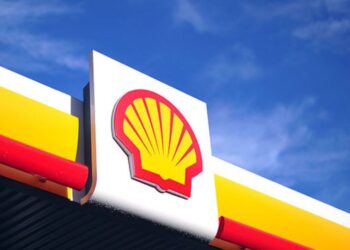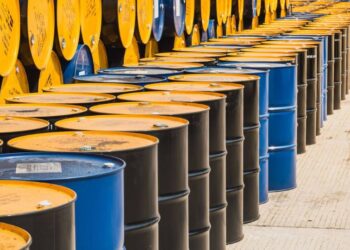In the divided capital of Cyprus, a line of cars waits at the checkpoint to cross to the north side.
Greek Cypriots no longer hesitate to go to the “occupied zone” to fill up with gasoline, taking advantage of a low Turkish lira.
The Turkish army invaded the northern third of the Mediterranean island in 1974 in response to a coup d’état by Greek Cypriot nationalists who wanted to reattach the island to Greece. And a Turkish Republic of Northern Cyprus (TRNC), where Turkish Cypriots live, was self-proclaimed in 1983, only recognized by Ankara.
If those who go to consume in the North are generally considered as “traitors” on the southern side, many Greek Cypriots have nevertheless taken the step.
The sharp fall in the Turkish lira and a drop in fuel taxes in the north have made gasoline prices very attractive, while in the south Greek Cypriots pay in euros and are experiencing inflation not seen since 1981.
– “Saving money” –
According to figures from the Greek-Cypriot police, the number of vehicles that used the road crossing points in the South/North direction tripled in one year, from 197,230 between January and August 2021 to 601,749 for the same period in 2022.
“I fill up there every week because with four children and a relatively low salary, I can’t make ends meet,” says a 45-year-old woman in her car at the Nicosia checkpoint.
She prefers to remain anonymous as do most of the motorists interviewed.
Going to the North allows you to take advantage of a price per liter of gasoline that is about 25% lower than in the South.
Usually, during off-peak hours, it takes about 10 minutes to switch from one side to the other.
The time to show his passport to the Greek Cypriot police before being registered a few dozen meters further by the Turkish Cypriot police.
For the past few months, it is not uncommon to have to wait half an hour to enter the “occupied zone”, as it is called by the Greek Cypriot government.
“My salary is only 700 euros. By filling up several times a month in the North, I can save 200 euros,” says Fanourios Michail, a 60-year-old carpenter.
“Greek Cypriots represent half of my clientele and my turnover,” explains Turkish-Cypriot Mehmet Tel, the manager of the K-Pet gas station located 500 meters from the crossing point.
This rush to buy gas in the North has triggered the ire of the Southern Gas Station Owners Association.
According to its spokesman Christodoulos Christodolou, this phenomenon would represent an annual loss of revenue of 7 million euros for owners of gas stations and 80 million euros in tax revenue on fuel for the Republic of Cyprus, member of the European Union.
– “Illegal” –
“We want this illegal phenomenon to stop and for the Green Line regulation to be applied,” Christodoulou told AFP, referring to the UN-controlled demilitarized zone that cuts the island in two.
This European regulation defines the conditions for the movement of people and goods between the two zones.
However, it stipulates that the movement of fuel from the “occupied territories” to government-controlled areas is prohibited, Christodoulou said.
The Association accuses the authorities of turning a blind eye to this phenomenon.
Allegations refuted by the spokesman of the Cypriot government Marios Pelekanos. Controls are carried out to “reduce illegal fuel movements while protecting tax revenues and reducing the impact on legitimate fuel suppliers,” he assures AFP.
Skeptical, Mr. Christodoulou said Wednesday at a press conference that his association had denounced to the EU the attitude of the government. After having “exhausted all possibilities of contact with the competent authorities”, it claims “compensation” from the State for “all
the damages suffered”.
The association also does not rule out contacting Frontex, the EU’s border control agency, for stricter controls on the Green Line, even though it is not legally a border.






